Pat Bertram's Blog, page 260
September 1, 2012
Visiting La-La Land
La-La Land is defined variously as:
Los Angeles
A place renowned for its frivolous activity
A state of mind characterized by unrealistic expectations or a lack of seriousness.
A euphoric dreamlike mental state detached from the harsher realities of life
Whatever La-La Land is, I took a trip there. The actual name of the place I visited was Venice Beach, but Venice is part of Greater Los Angeles, so it counts. There was definitely frivolous activity of all kinds, though I’m sure the guys at Muscle Beach and the various street artists and entreprenuers all thought they were involved in serious business. Others were like me, taking a vacation from the harsher realities of life.
These images show a completely unrealistic view of the area since the place was people-packed and smoggy. But still, I managed to get some lovely photos. So, come join me in a pictorial tour of a make-believe land far away.

La-La Land
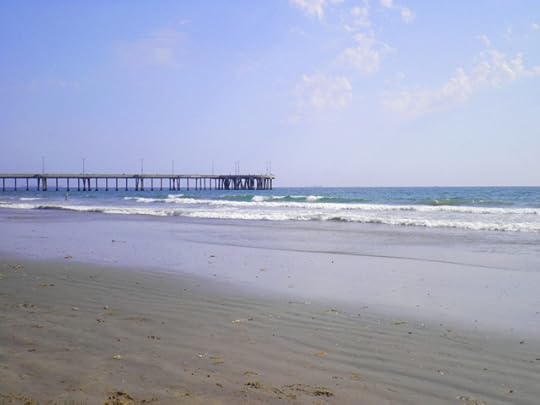
Venice Beach Pier

Venice Beach as seen from the pier
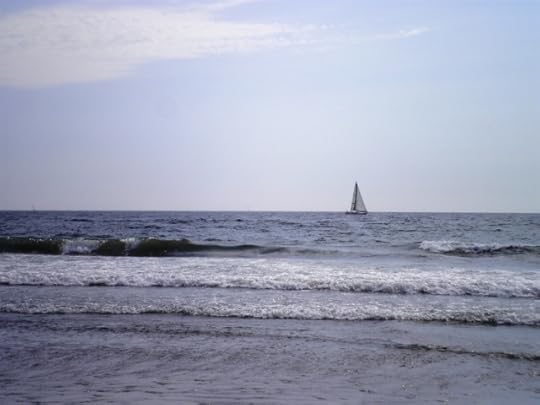
Sail Away

Low tide

Surf shop
Tagged: La-La Land, ocean photos, Venice Beach, Venice Beach Pier, Venice California


August 31, 2012
Sand by Any Other Name is . . . Beach
I’ve been walking in the desert almost every day and as much as I enjoy my sandy treks, I decided I needed a change, so I took a trip to Santa Monica in California and found . . . yep. Sand.

Santa Monica Beach
It must be sand that brings out the mystic in me, because I sitting on the beach, looking at the ocean, and what should have been a startlingly wonderful experience was lovely, but not startling. It occurred to me that all this practice of being me, of being in my body, of being present, makes every experience unique in it’s own way. Of course, being in the moment at the beach is more fun that being in the moment in a traffic jam, but both add up to the moments of our lives.
Here are a few moments from Santa Monica.

Santa Monica Pier

Santa Monica Pier

One-Man Band — part of the never ending human carnival on Santa Monica Pier

Santa Monica Mountains as seen from the pier
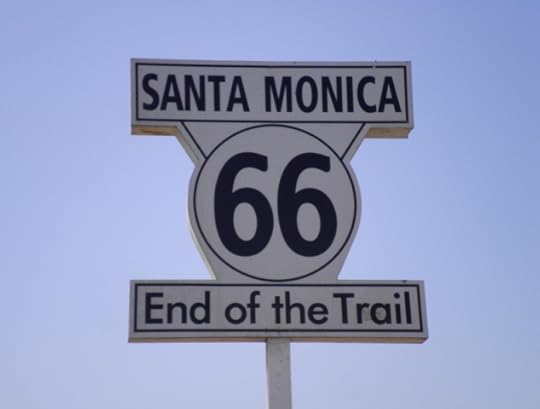
End of the Trail
Tagged: one-man band, postaday, Santa Monica Beach, Santa Monica pier, the human carnival


August 30, 2012
Who Decides What Books are Worthwhile?
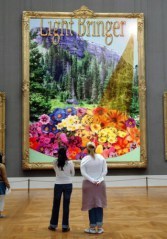 I watched Incognito the other day, a story about an art forger. One of the most interesting bits of dialogue was when a gallery owner says (screams it, actually) that whatever he says is art, that is art. The comment caught my attention because lately I’ve been blogging about the publishing industry, the writing community, and where (or how) I fit into this modern world of books. And a big part of that equation is the meaning of art as it applies to writing.
I watched Incognito the other day, a story about an art forger. One of the most interesting bits of dialogue was when a gallery owner says (screams it, actually) that whatever he says is art, that is art. The comment caught my attention because lately I’ve been blogging about the publishing industry, the writing community, and where (or how) I fit into this modern world of books. And a big part of that equation is the meaning of art as it applies to writing.
I have no fondness for the corporate publishers. For the most part, the books they’ve been publishing for a long time now seem boring and trivial, and hold no real truth for me. I am not one who can read the zillionth book in a series and still maintain my interest in the characters. The writers I have always liked are non-literary authors, such as David Westheimer and Nevil Shute, who wrote stand-alone books that did not fit into any particular genre. (To me a literary author is one who is more focused on how something is said than on what is said, and who is more focused on what is said than on the story itself.) In fact, the very reason I decided to write my own books was that I could no longer find the sort of novels I liked to read.
On the other hand, I have no special fondness for self-publishers. Many write the same sort of drivel that the major publishers put out — trivial books that lack individuality and truth. Even worse, many are badly written, and the plethora of errors shows a complete disregard for readers. Originally, I assumed these writers who go it alone were better than those published by the corporations, since the major publishers seem to specialize in a high degree of mediocrity, but unfortunately, the reverse is too often the case. Worst of all, in an effort to get noticed and make a living, many authors write a book every three or four months. Without time to think, without the grueling months of rewriting, editing and copyediting, authors will be foisting increasing numbers of less than stellar books on the market.
In this avalanche of books, what distinguishes one from another? Who decides what is worth reading? Who decides what books will succeed? The critics? Just because they say a book is worthwhile doesn’t mean that it is. Some of the books that have won major awards stun me with their ghastliness. The corporate publishers? The books they choose aren’t picked for worth; they are chosen for salability. The masses who self-publish? The masses who read? (I hate using the word “masses,” because really, who among us ever considers themselves one of the masses? But I can’t think of a better one to describe huge numbers of people who do the same thing as everyone else.) Look at the self-published books that have achieved icon-hood — few have little value as literature or art, few have a modicum of “truth.”
So who is to decide what is art or literature? My books are published by a small press, and so are the books by many writers I have met online. Someday, maybe, these small presses will provide a literary haven between the two extremes of self-publishing and corporate publishing, but the truth is, no one has to decide what books are art, which books have merit. It doesn’t matter.
In the beginning, stories were told wherever humans gathered. It is one of the very few things that separate us from any other species — our ability to tell stories. It is what makes us human. Perhaps even what makes us divine. We are a species of mythmakers, telling ourselves the story of our lives, telling each other the stories of other lives, both real and imagined.
The pen was the first great technological advance in story telling, followed by the printing press. The printing press allowed certain businesses to control what stories were told, and that control held true for centuries. Now, in this electronic age, the control is gone, and anyone can publish anything, no matter how terrible. This puts a burden on readers since often they get stuck buying something that is poorly written and badly edited, if edited at all, but this is the way things are going to be for a long time to come.
And perhaps the situation is not such a bad thing. We could be moving away from literature as art (as defined by self-styled critics) and returning to our very beginnings . . .
Storytellers.
Tagged: Incognito. what is art, self-publishing, small press books, the pen as a technological advance, what is literature

August 29, 2012
Blogging is Writing, Too
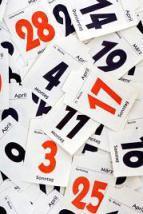 I always hated the saying “A writer writes . . . always.” No one does anything “always” except maybe breathe. And anyway, the very fact of having written five books and getting them published makes me a writer, even if I write . . . whenever.
I always hated the saying “A writer writes . . . always.” No one does anything “always” except maybe breathe. And anyway, the very fact of having written five books and getting them published makes me a writer, even if I write . . . whenever.
But it turns out the joke is on me. I do write always, or as nearly always as possible. I’m either writing an article for this blog, or trying to think of a topic, either planning what I am going to say when I do think of a topic, or experiencing things which I will later write about. I don’t know why I tend to think that “writing” means fiction writing, perhaps because fiction comes hard for me and blogging easy, but the truth is, blogging is writing, too.
On September 25, 2011, I accepted a challenge to blog for 100 days. (I found out about it two days late — the challenge was actually to blog the last 100 days of the year, and it started on the 23, but I figured I’d add the missing two days on the back end.) I hadn’t been writing much, just an occasional blog post, and I was drifting, not doing much of anything except struggling with an upsurge of grief (still don’t know why 18 months after a grievous death is so hard, but it’s part of the grief pattern). So much I had counted on had disappeared — my life mate/soul mate, our way of life, some of the friends I made after his death— that I felt as if I were disappearing too.
I thought writing every day would give me something to hang on to, and it must have worked, because after the challenge ended, I didn’t quit. I never actually made the decision to stick with daily blogging — I just did it — and to my surprise, I find myself less than a month away from completing an entire year of daily posts.
I’ve come a long way in the past 341 days, turned several corners, came to many realizations, but most of all, I found peace. Or rather, I made peace. I made peace with the death of my mate, with my place in the universe, and with my place in the world of books. Even without the daily blogging, I might have come to the same realizations at the same time, but writing gave focus to my thoughts, and daily writing gave focus to my life. I’d planned to stop the daily posts after my one-year anniversary, but now . . . who knows. I might keep going. (Though one person suggested — facetiously, I hope — that I should give my poor blog readers a break.)
Tagged: 100-day blog challenge, blog challenge, blogging and writing, making peace, postaday

August 28, 2012
Trusting in My Journey as a Writer
 I am not a natural storyteller. It took me my whole life to learn the elements of storytelling and to learn to write in a manner that pulls readers into my stories. After that, it took years to get published, because at the same time I was writing my first four novels, I had to learn the industry, such as what was required and who required it. I finally found a publisher who loved my books, and when the first two were released simultaneously, and a third six months later, I thought I stood poised for greatness. I was prepared to do what it would take to make a name for myself, but then, before that could ever happen, the gates of the book business burst open, and a horde of self-publishers surged into the arena. Not only did I have to compete with the established writers, I had to compete with millions of unknowns who were much better at marketing than I could ever hope to be.
I am not a natural storyteller. It took me my whole life to learn the elements of storytelling and to learn to write in a manner that pulls readers into my stories. After that, it took years to get published, because at the same time I was writing my first four novels, I had to learn the industry, such as what was required and who required it. I finally found a publisher who loved my books, and when the first two were released simultaneously, and a third six months later, I thought I stood poised for greatness. I was prepared to do what it would take to make a name for myself, but then, before that could ever happen, the gates of the book business burst open, and a horde of self-publishers surged into the arena. Not only did I have to compete with the established writers, I had to compete with millions of unknowns who were much better at marketing than I could ever hope to be.
Well, fate had other challenges in store for me. Five months after Second Wind Publishing released my third book, my life mate/soul mate/best friend/personal editor died, shattering me and my life beyond all recognition. One of the problems with losing the one person who connects you to the earth is that you no longer know who you are. For more than two years now, I’ve been tormented with the question of my place in the universe. With so many billions of people alive today, what is the point of being me?
I recently realized that the point of being me is simply to be me. I am the only me in the universe as far as I know, unique in a way only I can be. In the past few months, I have learned to trust in my life’s journey. I am trying to believe I am where I am supposed to be, being who I am supposed to be.
I now have five books released — the final novel my life mate helped me edit, and a journal of my grief — and I still have not reached the readership I’d hoped to find. I’ve been feeling as if I were adrift in an ocean of books, and I haven’t been able to find a reason to continue writing fiction. The books that apparently appeal to book buyers seem to have been written to capitalize on a trend — vampires, zombies, eroticism, bondage, symbols, serial killers — and my books are completely different from any of those. With so many millions of people publishing today, what is the point of my being one more unbestselling author?
If you’ve been reading my recent articles, you know how much this question about the meaning of writing has plagued me, and yesterday I found the answer. The point of writing is the same as the point of living — to be me. No one else can write the books I write. No one else sees the world in the same way as I do. Even better, most people who read my books love them. Such an incredible thing — to have written a book that even one person truly loves, and there are many who love my books. Would it be nice to make a living by writing, to be a bestselling author? Yes, of course, but in truth, it’s important for me to just write.
Now all I have to do is learn to trust in my journey as a writer. To believe I am where I am supposed to be. To write what only I can write. To be me.
Tagged: grief and loss, journey as a writer, natural storyteller, publishing industry, trusting in the writers journey, what is the point of writing

August 27, 2012
Echoes of Grief
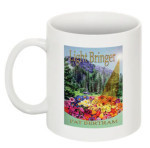 Today marks twenty-nine months since the death of my life mate/soul mate/best friend. I’ve come a very long way from that shattered woman who screamed her pain to the winds, who cried for hours when she accidentally broke his mug.
Today marks twenty-nine months since the death of my life mate/soul mate/best friend. I’ve come a very long way from that shattered woman who screamed her pain to the winds, who cried for hours when she accidentally broke his mug.
I still miss him, still want one more word from him, one more smile, one more day. I still have an upsurge of sorrow when I remember he is gone. And although I know — I feel — how very gone he is from my life, I still am prone to the foolish fantasy that when I am finished looking after my father and leave here to start a new life, my mate and I will be starting it together. But . . .
I barely remember our life together. It seems so very long ago and as if it happened to someone else. (Which is true — it did. Because of what I have endured these past two years and five months, because of embracing the challenges of the present and opening myself to hopes for the future, I am not the same as I was then.) I’ve turned enough corners now that even my grief seems unreal, as if that, too, happened to a different person. And yet . . .
Our shared life is very much a part of me still. Almost everything I do is accompanied by an echo from our past, almost everything I use originates from that time. I’ve bought a few new things — bits of clothing, mugs with my book covers on them (a totally indulgent purchase since I seldom use mugs), but I don’t really need anything. Most of our possessions are in storage, and I both dread and look forward to the day when I unpack them. I’m not sure whether I will find comfort in having our things around me, or if I will find more pain, but that puzzle is for another day, and perhaps another person. I am changing rapidly and will continue to change as my life changes, so the person who will need to deal with those possessions is not the me of today.
In a strange sort of way, I have been getting messages from him. Not messages from wherever he is now, but from where he was when he still inhabited this earth.
He used to tape movies — movies that we both liked, and movies that spoke specially to him. I am going through his movie collection, watching in backward order (from the ones he taped last to the ones he taped first), and I catch glimpses of what concerned him toward the end of his life. Death, of course, and me, perhaps. So many of the movies he taped that last year were about people (mostly women) whose spouse had died, forcing them to create new lives for themselves.
We watched these movies together when he first taped them, and I thought I knew then why he liked them — he was always fascinated with second chances, new beginnings, characters who came out of catastrophes to find renewal. But now, seeing the movies from this side of his death, they have a whole new meaning for me. Over and over again is the message: take care of yourself, accept the challenge and the change and the freedom that death brings, and most of all, find happiness again.
Sheesh. I made myself cry. But dang it — this new life would be so much more happier if he were here to share it.
Tagged: death of a spouse, grief and loss, life after grief, messages from the grave, moving on, watching movies

August 26, 2012
The Future of Publishing
 Some people have predicted a dire end to the publishing industry as we know it, and perhaps it needs to die. The old system of advances, where publishers subsidized the careers of a few specially chosen writers (literary authors or potentially lucrative authors who had not yet garnered a lot of attention) with the proceeds of bestselling commercial writers is a ridiculous anachronism in this world of corporate monoliths, and it is already being phased out.
Some people have predicted a dire end to the publishing industry as we know it, and perhaps it needs to die. The old system of advances, where publishers subsidized the careers of a few specially chosen writers (literary authors or potentially lucrative authors who had not yet garnered a lot of attention) with the proceeds of bestselling commercial writers is a ridiculous anachronism in this world of corporate monoliths, and it is already being phased out.
The new publishing model of anyone publishing anything, no matter how trivial or poorly written, is no better. It still comes down to the same thing — that only a few writers will ever be able to make a living at the profession. As the anachronistic industry conforms more to the digital age of “content creators,” there will be fewer writers making millions and millions more writers making almost nothing.
In the old system, the publishers made the profits, not the writers. In the new system, the content distributors, such as Amazon, will make the profits. To Amazon, it makes no difference if they sell a million books by one author or one book by a million authors. It still comes down to the same thing — one million books sold (with absolutely no capital outlay). In fact, it doesn’t even matter if those books were sold or given away — Amazon still makes money from advertisers.
The price of books is constantly sliding downward. The $.99 ebook is becoming expensive in a world where readers expect books to be free. Unless there is a book they want to read (generally because everyone else is reading it) and so will plunk down cash, readers will most often choose the free item. In other words, writers will become drones feeding the machine with an ever-devalued product. There will always be a few writers making big bucks, of course, simply because hopes of financial success oil the machine. (In the same way, ordinary people occasionally become millionaires, perhaps by winning the lottery, which keeps taxes for the rich at a relatively low level, since people won’t vote to tax the rich if they expect one day to become rich themselves.)
In the end, what does all this say about the publishing industry? Perhaps nothing. Writers will still write. Most of us write not to make money, but to write and ultimately to be heard, if only by a few discerning readers. (Though a living wage would be nice.) People will still want stories. That is, after all, what we humans are — storytellers.
Print books will become scarce, but will probably always be available for those who want them, since books can be printed one at a time. (At least until the machinery breaks down.) Ebooks themselves will eventually be replaced by something else — interactive stories, perhaps, where the readers get to choose the ending. Or maybe stories that are fed directly to our heads via implanted computer chips. Who knows — certainly not me. All I know is that technology changes so rapidly that in twenty-five years, a book might bear as little resemble to today’s ebook as an ebook does to a print book.
There’s also a vague chance that the entire industry will burn itself out. When everyone can do something now, without working for it — such as publishing a book — there is no dream for the future. And what are we if we have no dreams?
Tagged: dreams for the future, ebooks, end of publishing, postaday, publishing industry, selling books on Amazon, who profits from books


August 25, 2012
Do Writers Need To Be Supportive Of Each Other?
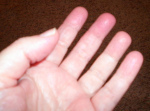 Do writers need to be supportive of each other, as if we are all part of one big dysfunctional family, as if all writers are the same, or at least connected in some way? I can see that it’s important not to be envious of those who make it big, since envy destroys the envier, but I see no reason to be glad of the success some writers attain, especially those who write books I would not read if they were the last books left on the face of the earth. Nor do I see any reason to celebrate the success of someone I have never met or have never exchanged so much as a single eword. Nor do I see any reason to encourage writers to write. Those who want to write, write. It’s as simple as that.
Do writers need to be supportive of each other, as if we are all part of one big dysfunctional family, as if all writers are the same, or at least connected in some way? I can see that it’s important not to be envious of those who make it big, since envy destroys the envier, but I see no reason to be glad of the success some writers attain, especially those who write books I would not read if they were the last books left on the face of the earth. Nor do I see any reason to celebrate the success of someone I have never met or have never exchanged so much as a single eword. Nor do I see any reason to encourage writers to write. Those who want to write, write. It’s as simple as that.
To some extent, almost all people are writers, even if they just jot shopping lists, post status updates, and respond to email messages, but this doesn’t make me connected to them except in the cosmic sense that we are all connected. (To be crankily honest, some who call themselves writers should have stayed with writing shopping lists.)
I’ve never felt any great bond to other writers, perhaps because I never really considered myself a writer. I don’t always write — sometimes I do, more often I don’t. I have no great passion or deep need for writing, no burning desire to create, no characters that scream to be born, no story that demands to be written or that writes itself. I don’t define myself by what I’ve written or what I might plan to write. My books are not my children, my characters are not my friends. When I write, I do have moments of being in the “zone,” but mostly I have to dig for each word, which is okay since that’s the part of writing that’s fun for me — finding the perfect word to say exactly what I mean. (The other day someone posted a question in a writing group asking for help figuring out a word since he didn’t have time to find it for himself. To me, that’s not a writer. Words make a writer. If you have no time for words, what’s the point of writing?)
Speaking of words, I don’t understand why so many writers brag about their word counts. What does a word count mean? It doesn’t impart anything about the quality of writing. For all I know, the authors could have been stringing nonsense syllables together or writing shopping lists, so why should I care how many words they wrote? Word counts mean nothing, what counts is the meaning of the words.
I really do sound cranky, don’t I? Well, perhaps I am, but it does irk me that just because I’ve written a few books and gotten them published, I am supposed to accept other writers as my “family.” Someone who slaps together a draft and posts it on Amazon as a published book doesn’t have anything in common with me. Someone who sits down and spews out thousands of words — good or bad — doesn’t have anything in common with me. Someone who scribbles an erotic book that catches the fancy of the masses doesn’t have anything in common with me. (Nothing I write will ever go viral. I have taste.)
Still, I do what I can to be supportive of other writers. I have two blogs that cater to writers — one is for book excerpts, and one is for interviews. (Feel free to send me an interview or book excerpt according to the instructions on the blogs.) I also have a writing discussion group on Facebook to help writers develop their craft, and I host a self-promotion extravaganza every Saturday to give writers a forum to promote. So maybe this is a case of my actions speaking louder than my words.
Tagged: feeling cranky, write or don't write, writers helping writers, writers supporting writers

August 24, 2012
Is the Internet a Good Place for Aspiring Writers?
 I had several topics I wanted to talk about today, but then I checked in with my discussion group on Facebook where they were talking about aspiring writers attacking other aspiring writers, and now that topic is the one foremost on my mind.
I had several topics I wanted to talk about today, but then I checked in with my discussion group on Facebook where they were talking about aspiring writers attacking other aspiring writers, and now that topic is the one foremost on my mind.
I never encountered attacks when I was learning to write because I didn’t get on the internet or meet other authors until I was already an accomplished writer. In the beginning, it was just me, pencils and paper, and an idea. (I didn’t even have a typewriter, let alone a computer.) Later, it was just me, pencils and paper, an idea, and a steady stream of books about writing — hundreds of them. Writing coaches often remark that you learn about writing by writing, but it takes a lot of writing (some say 10,000 hours, some say 1,000,000 words) to become adept at the craft. I thought that by studying how to write I could hurry things along so I could start making money from my books. (Hard to believe I was ever that naïve — the money part, that is. Learning to write was the right thing to do.)
I’ve hidden my first novel so I don’t come upon it by accident — it’s that bad. Of course, while writing it, I thought it sounded wonderful. Words added up to sentences, sentences added up to paragraphs, paragraphs added up to . . . well, you get the picture. Later, when I learned to write, I saw the horror of it. To this day, no one has read any of that draft, and no one ever will until I rewrite it. And re-rewrite. And edit. And re-edit. And copyedit. (I still like the premise, so it’s on my exceedingly short list of ideas for books.) I can’t imagine what sort of horrendous attack posting any part of that book online would have garnered, but as much as the attacks would have hurt, they would have been deserved, though I would not have known that.
One of the first things I did after getting the internet and learning my way around was to start this blog. (On September 24, this blog will celebrate its fifth anniversary. That day will also mark 365 days of daily blogging and my 1000th post +2. Any suggestions for a gala celebration?)
A couple of weeks after beginning to blog, I entered a writing contest where people left comments on the first chapter of a novel. By asking some people to vote, I enraged them since they considered such messages spam, and they retaliated with some of the most scathing commentary I’ve ever encountered. After those comments — and the 200 rejections I received before I found a publisher who loved my work — I became inured to attack.
The disparaging remarks never cease. Once my books were published, I got a few low ratings from other writers who thought (foolishly) that by giving me single stars it will make their ratings look better. I also got bad reviews (or at least mediocre ones) from people who simply didn’t understand the books, mistook the genre, or realized too late the books were outside their comfort zone.
I spent years on my books — perfecting the craft, rewriting and editing, following the suggestions of my editors to make them even better. They are the exact stories I wanted to write with the exact words I wanted to use. If people don’t like my books, that is their prerogative, and they are welcome to say so, but I’m not changing a single word to reflect the tastes of the few who dislike or who misunderstand my books. The way I see it, reviews are for other readers, not me — I already know what the books are about.
Most readers say nice things about my books, and most of the reviews are wonderful. Many of the reviews seem to have been written by my friends, but generally it worked the other way around. I became friends with my reviewers. How could I not? They have such great taste!
The internet is a great tool for writers, but I wonder if it hinders just as much as it helps. If I had put myself out there too soon, I’d have taken attacks personally, and maybe followed a different path with my writing. By waiting to put myself out there after I’d become an accomplished writer, it didn’t matter so much what anyone said. I knew the truth.
Tagged: aspiring writers, attacks on aspiring writers, bad reviews, learning to write, postaday, the internet as a writing tool


August 23, 2012
Don’t Buy My Books
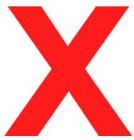 With millions of people out there urging you to buy their books, I’m going to do the opposite and tell you not to by mine. Considering the books that make it big in this anything-goes book world, chances are you won’t like my novels, anyway. Here’s the truth of it — don’t buy my books if:
With millions of people out there urging you to buy their books, I’m going to do the opposite and tell you not to by mine. Considering the books that make it big in this anything-goes book world, chances are you won’t like my novels, anyway. Here’s the truth of it — don’t buy my books if:
You are looking for vampire, ghouls, zombies. There are no such beings in my novels, though there is a brief mention of zombies in A Spark of Heavenly Fire, and there are plenty of sub-humans, such as unscrupulous scientists and bureaucrats, but they bleed and eat the same as any human.
You are a romance junkie. Love is a theme in each of my books, but the conflicts are never romantic ones. The characters gradually fall in love as they band together against a greater villain than their own feelings could ever be.
You are a fan of Fifty Shades of Grey. There is no eroticism in my books, no women who want to be subjugated by men, no kinky sex. In fact, the only graphic sex scene is in More Deaths Than One. Each of my books had less sex in it than the previous one, so my last novel, Light Bringer, had no sex. The story did not call for it, and it never occurred to me to add a few gratuitous sex scenes to help the books sell. (Also, unlike FSofG, my books are well-written.)
You only read thrillers. Although my books all have thrilling moments, and although people often stay up late to finish reading one of my books, they are not thrillers as such. In thrillers, the reader knows who did it from the beginning and learns why from the villain since part of the book is told from the villain’s point of view. In my books, the villain’s identity is not revealed until the end, except in Light Bringer, where the villain turned out to be maybe not so villainous after all.
You want books that are the same as all the rest, only different. My books aren’t the same as all the rest. I’ve read over 15,000 works of fiction, and I made sure my books weren’t like any of them. The endings are not predictable. If by chance you do guess the ending, there will still be a bonus surprise for you.
You like stories with flawed heroes. Not one of my characters was purposely flawed to make them more interesting. They are real in their own right, struggling to survive as best as they can, learning the truth of themselves and their world, growing into who they need to become.
You like raunchy humor. There is much humor in my books, particularly Daughter Am I, but the humor comes from character interaction without a single tinge of raunch, or it comes from a sly sense of irony.
You like a particular genre. My books have no particular genre. When I was growing up, the libraries had small sections for genres such as mystery, science fiction, romance, westerns, but the rest of the books were all shelves alphabetically. That’s where my books belong — with the rest. When I have to pick a genre, I usually say the books are conspiracy fiction since they are all based on various so-called conspiracies. Some readers call Light Bringer science fiction , but to be honest, it was written as myth fiction — based on modern conspiracy myths and ancient cosmological myths.
You only “buy” free books. My books are not free, and except for rare promotions, they never will be free. You can, however, download 20-30% free at Smashwords to give you a sense of what my books are like. (You can find my Smashword’s profile here: Pat Bertram. Scroll down below the book trailers to find my books. Click on the one you’d like to download.)
Tagged: conspiracy fiction, genre fiction, myth fiction, romance junkie, zombies





